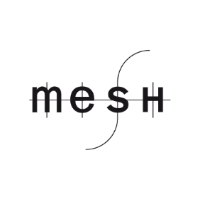September 28-29, 2023 | Auerbach Bibliothek, Wienand Haus, Weyertal 59, 3. OG and zoom (as well as in the field)
MESH | Multidisciplinary Environmental Studies in the Humanities, UoC
GSSC | Global South Studies Center, UoC
SFB 1252 | Prominence of Language, UoC
The event is part of a workshop series organized by the AHRC Networking Project on Rethinking Fables in the Age of Global Environmental Crisis, University of Kent, UK
Conveners: Chris Bongartz and Christoph Lange
(contact: c.langeuni-koeln.de)
The hybrid part of the workshop begins with the screening of the short documentary The Bardia on September 28, @7PM. The film is introduced and discussed by Gwyneth Talley (film maker, producer, visual anthropolgist, American University Cairo, Egypt).
The Bardia (2021) is a documentary film that follows Amal, a Moroccan woman from Kenitra. After giving birth to her second child, the leader of a Moroccan tbourida team–––a dramatic sport of horsemanship and riflery––navigates 3 years of limbo as she struggles to compete again. The producer Gwyneth Talley and main star Amal Ahamri will talk about the filming, producing and continuing story of what it is like to be a woman in the horse world in Morocco.
Workshop Abstract
Our workshop seeks to explore the South-North trajectories involved in contemporary horse breeding and -training with an eye to political ecology and economic disparities that characterize the respective equestrian communities in the wider Mediterranean and Middle East region. The horse-human connection has been variously explored in terms of historical implications for human mobility and migration, agricultural and military achievements, and the nexus of domestication and cultural formation at large. There is also some quite plausible speculation about the role of horses in the spread and development of human languages. In the recent turn of human-animal studies, multispecies ethnography, and particularly in equine scholarship in anthropology and anthro-zoology the research focus often lies on interactionist interspecies approaches. Many recent studies fall short on reflection about the embedded geo-political aspects of contemporary hegemonial horse (and other nonhuman animals) discourses and exclusionist practices, especially in a North-South perspective. The workshop’s aim, therefore, is to develop and experiment with an approach that fruitfully engages with this tension of scale. Our starting point is recent work on rethinking the fable genre as both an “art of multispecies storytelling” and a “versatile tool and important resource, which can help us to think differently about pressing global issues and the environmental, political, and technological challenges we face” (see Nagai 2023, Hartigan 2015). The workshop focusses on the materiality of horse interactions and addresses situated forms of interspecies literacy that simultaneously enable/inform concrete encounters and account for embedded sociopolitical discourse and a multitude of inequalities. One possible point of reference are the connections of wellbeing of work equids in the context of community resilience in the face of environmental and humanitarian crises (Clancy, Watson, and Raw 2022).
Participants from diverse backgrounds will address two or more of the following principal questions:
- How can your area of interest be described in terms of fables of fulfillment or multispecies storytelling?
- What drives cultural imagination in your area and what forms of contestation are at play?
- How is agency of horses and/or humans in your area embedded in and scaled into global dynamics and vice versa?
- Which are outstanding dynamics of your area (conversation, culture, capital) that could be defined as equine or interspecies literacy?
Short Programme:
The workshop is designed as a hybrid event.
On the first day – Thursday, 28 September 2023 – On the first day – Thursday, 28 September 2023 – we will visit an equine facility in Cologne (riding and training stable). We will turn our attention to actual horse-human encounters, and we will discuss how interspecies communication works with equine practitioners of diverse backgrounds. To that effect, we plan a documentation by using an experimental exercise of situational conversation analysis with audiovisual methods (filming, photographing, voice recording).
On the second day – Friday, 29 September 2023 – we will have a hybrid online session with equine experts and researchers where we will make preliminary material from the first day available. In addition, we invite presentations focusing on the discursive aspect of interspecies communication. Aspects of critical analysis and ethnographic research, as well as historical and literature studies with a view on racial, economic, political and/or feminist underpinnings might be foregrounded here, including creative imagination and formats such as multispecies storytelling. We expect our discussions to bring out more clearly how our interests intersect and what we might be missing. With equine expert voices from the Global South we hope to develop a frame for focused interdisciplinary research on horse materiality with linguistic, socio-cultural, and anthropological perspectives.
For the hybrid online session on Friday we envision a set of discussion inputs from inter- and crossdisciplinary perspectives:
1) Conversations on the Material Horse in Anthropology & Social Sciences / Linguistics
2) Conversations on the Material Horse in Middle Eastern Studies and Archeology/History
3) Conversations on the Material Horse in Literary Studies
4) Conversations on the Material Horse from a Practitioner’s Point of View
